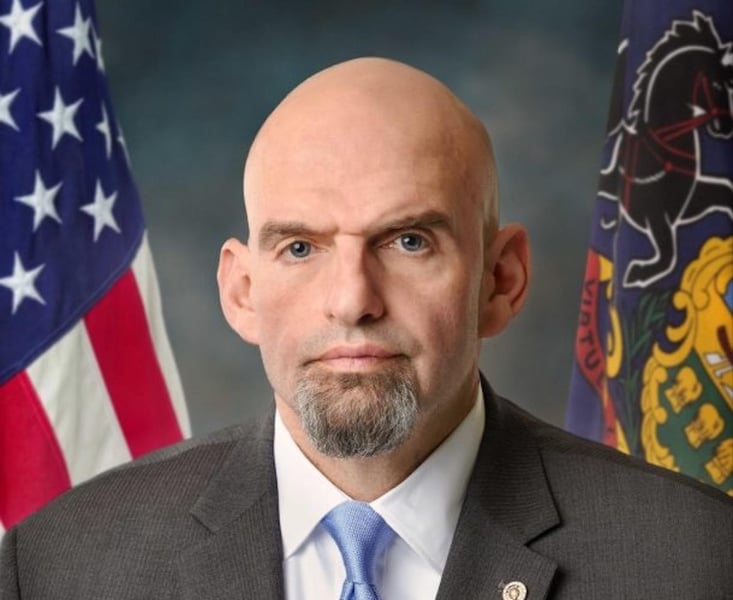Get Healthy!

- Cara Murez
- Posted February 17, 2023
Sen. John Fetterman Enters Hospital for Treatment of Clinical Depression
Sen. John Fetterman is being treated for clinical depression at Walter Reed National Military Medical Center.
"While John has experienced depression off and on throughout his life, it only became severe in recent weeks,"Fetterman's chief of staff Adam Jentleson said in a statement.
The Pennsylvania Democrat checked himself into the hospital on Wednesday night, Jentleson added.
Fetterman survived a near-fatal stroke last year while he was campaigning for the Senate seat he now holds.
Just last week, the first-term senator was hospitalized at George Washington University Hospital after feeling lightheaded during a Senate Democratic retreat.
At that time, Fetterman was in the stroke unit for two days, where he underwent various tests including an MRI. He had not suffered an additional stroke.
On Monday, he was evaluated by Congress' attending physician Dr. Brian Monahan, who recommended he receive inpatient care at Walter Reed, in Bethesda, Md.
"John agreed, and he is receiving treatment on a voluntary basis,"Jentleson said.
The senator missed votes on Wednesday and Thursday night, CNBC News reported.
Fetterman's transition to the Senate in January has been made more difficult because of his stroke recovery, the Times reported. He previously served as Pennsylvania's lieutenant governor.
His wife, Gisele Fetterman, asked for privacy.
"After what he's been through in the past year, there's probably no one who wanted to talk about his own health less than John,"Gisele Fetterman said in a statement. "I'm so proud of him for asking for help and getting the care he needs."
It's common for stroke survivors to experience depression, and the cause may be biochemical or psychological, according to the American Stroke Association.
Fetterman had been frustrated with his post-stroke health challenges throughout the campaign. His difficulties with communication have also impacted his relationship with his family, as has his time away from them while he works in the Senate, CNBC News reported.
More information
The U.S. National Institute of Mental Health has more on depression.
SOURCE: New York Times; CNBC News

